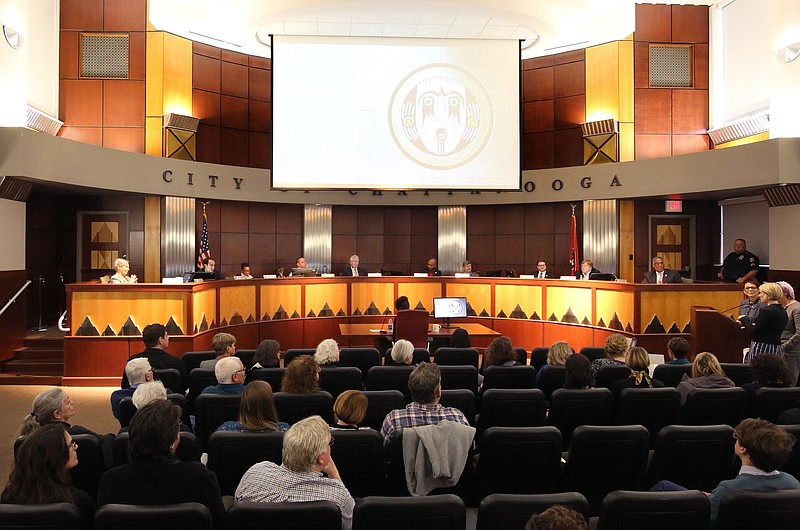The fact that economic development and job growth was the No. 1 concern in each of the nine Chattanooga City Council districts, according to a recent poll, should give mayoral and council candidates their marching orders both for the race and for the next four years.
That doesn't mean other issues aren't important, but that having jobs and having the ability to get better jobs trumps all others.
Indeed, economic development and job growth as an entity relates in some way to each of the other categories. For instance, crime and public safety, civil unrest and racial tension, and homelessness, mental illness and addiction - three of the other categories mentioned in the poll conducted by the Hamilton Flourishing organization - all demonstrably improve if unemployment is low and the ability to move up through additional economic development is fluid.
One need only look to 2020 for examples. When the COVID-19 virus forced job layoffs and business closings late last winter, crime, civil unrest and addiction increased across the country.
Homicides increased 50%, 40% and 30% in Chicago, New York City and Los Angeles, respectively.
"We're going to see, historically, the largest one-year rise in murders [nationally] that we've ever seen," said New Orleans-based data consultant Jeff Asher, according to NPR.
It's been more than a half century since the year-to-year murder rates climbed even 13%, he said.
In Chattanooga, fatal incidents of criminal gun violence climbed from 26 in 2019 to 30 in 2020, and non-fatal victims of criminal gun violence moved up from 100 in 2019 to 138 in 2020.
Civil unrest in the U.S. in 2020 was sparked by the death on May 25 of suspect George Floyd due to excessive force by Minneapolis police officers, but it's unlikely protests would have grown into riots, burnings and lootings in many large U.S. cities had the pandemic not thrown so many out of work.
As a result, the country, according to the Verisk Maplecroft Civil Unrest Index, jumped from the 91st riskiest jurisdiction in the world in the second quarter of 2020 to 34th in the world by the fourth quarter. The index assesses the risk of disruption to business caused by the mobilization of societal groups in response to economic, political, or social factors.
Further, the cumulative losses from civil unrest in the U.S was expected to top $2 billion last year.
Addictions, similarly, rise with an increase in unemployment.
"Years of data," according to AddictionCenter.com, "show that addiction rates are twice as high among the unemployed than those who have jobs, and in many cases, the stress of unemployment leads to substance abuse. Addiction also increases the likelihood that a person will have problems performing at work, and this can lead to job loss and even lower income."
In the first three months of 2020, as the pandemic set in, fatal drug overdoses nationwide rose about 16% compared to the same time in 2019, according to the Centers for Disease Control and Prevention.
The four other categories poll respondents were given when asked to choose the most important issue facing the city in 2021 were affordable housing, local roads and bridges, alternative methods of transportation and reducing carbon footprint.
If Chattanoogans don't have work, they are less interested in seeking better affordable housing, driving over roads and bridges, using alternative transportation and reducing the city's carbon footprint. If they have jobs and economic development is increasing, the more pressure will be put on the city's need for more affordable housing, better infrastructure, additional alternative transportation and improved carbon footprint.
However, when they have jobs and tax revenue is flowing, more money is available for developers to construct more affordable housing, for the city to repair roads and bridges, for the consideration of the efficacy of alternative forms of transportation, and for additional study of the effect of the city's carbon footprint on global climate change.
As candidates enter the campaign homestretch before municipal elections on March 2 (early voting begins Feb. 10), voters should listen and read carefully what they say about these issues. If candidates' plans place economic development and job growth at the top of their agendas, they are thinking broadly and are knowledgeable about how those things affect everything else.
If, on the other hand, their rhetoric signals their desire is to assist one segment of the population to the detriment of others, you probably don't need to know anything more about them. They don't deserve your vote.
